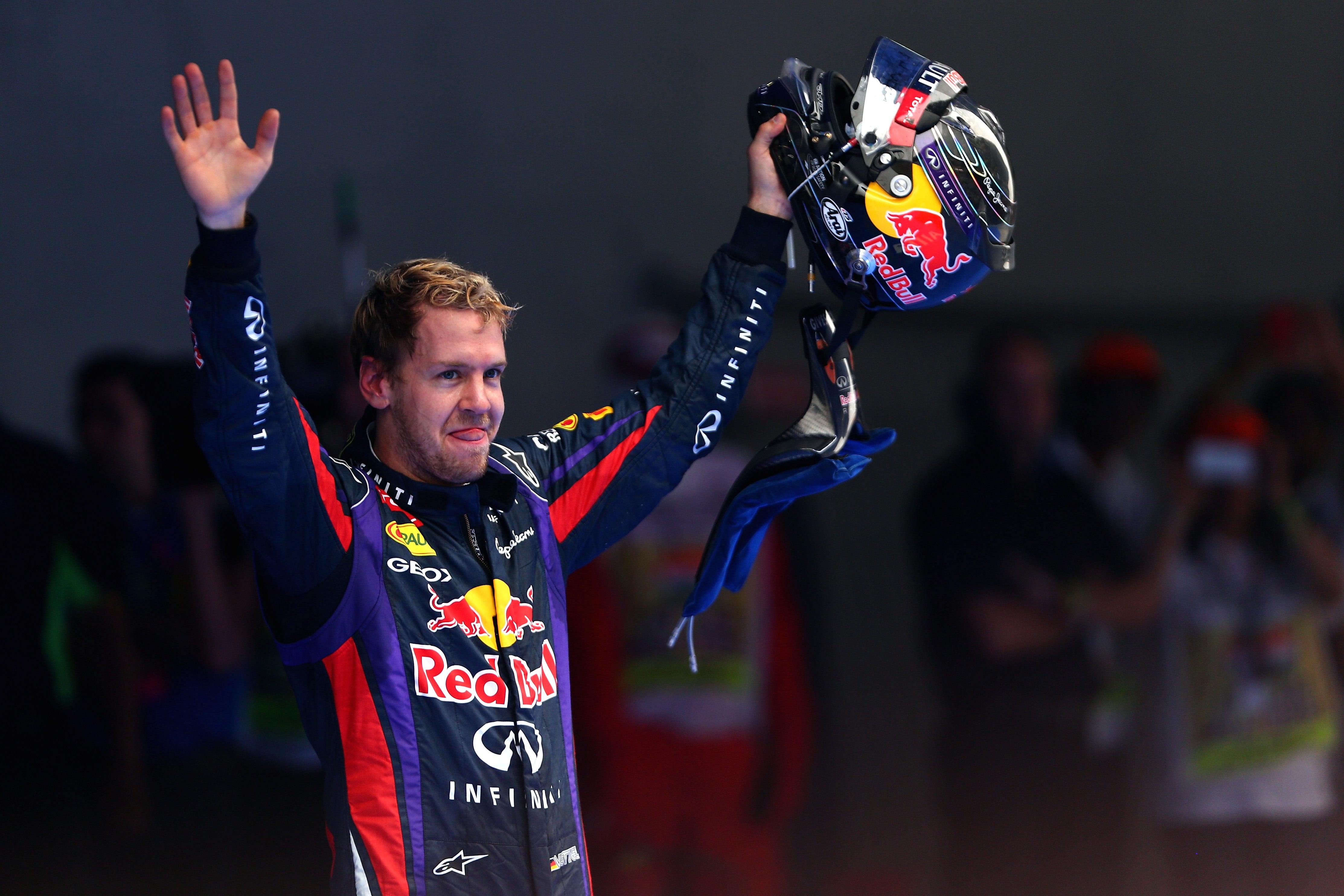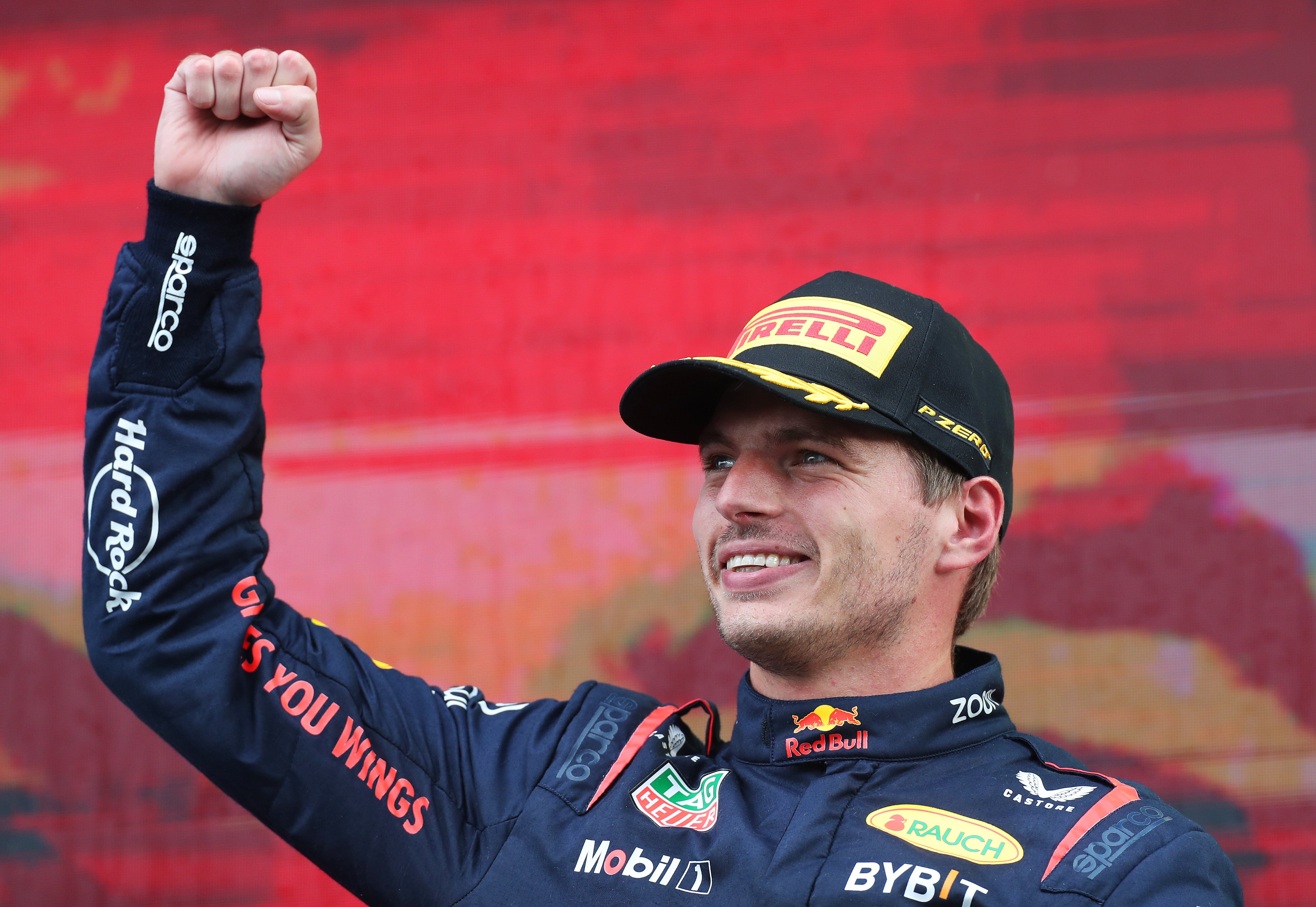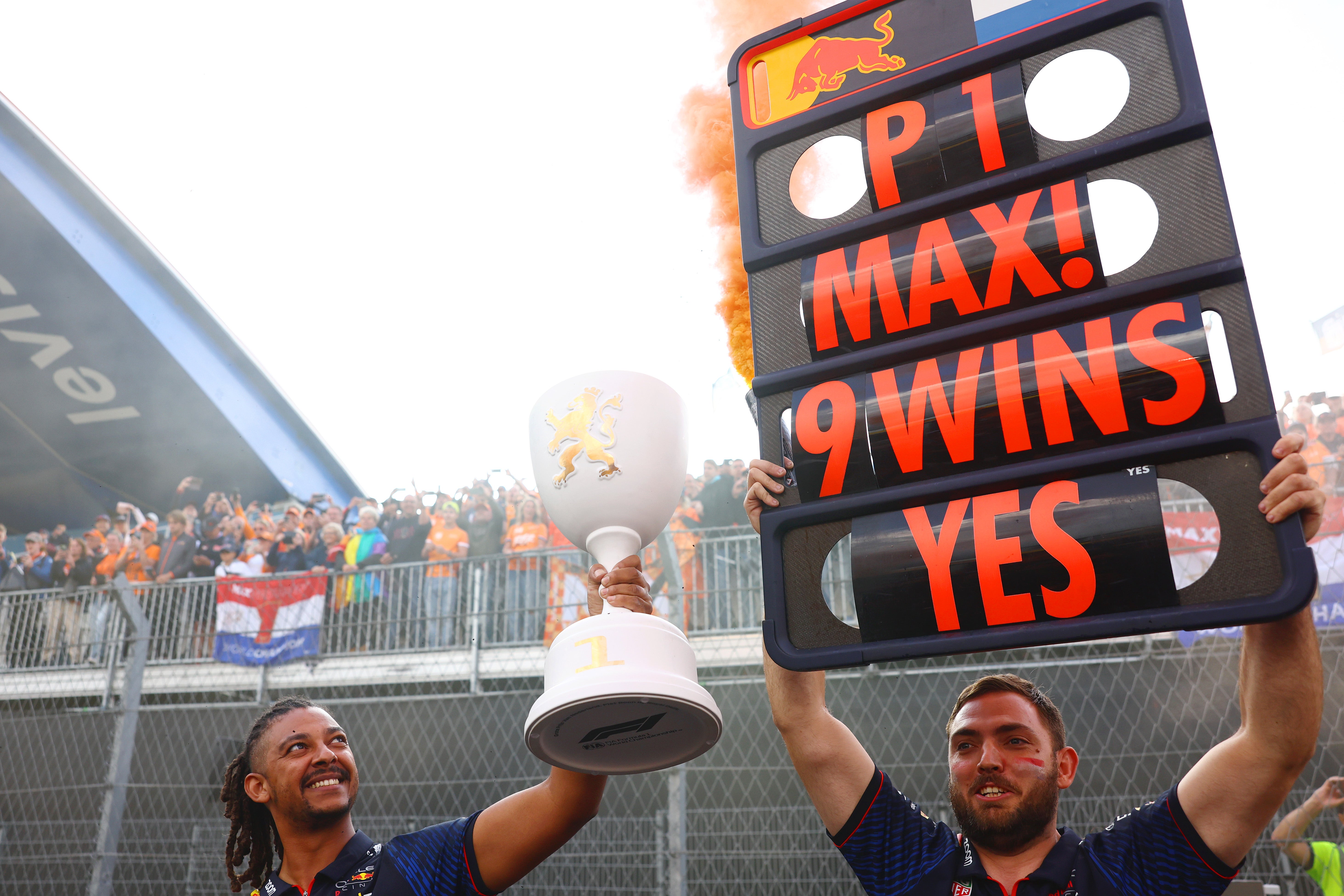How does Max Verstappen’s win-streak compare to fellow record-holder Sebastian Vettel’s?
Verstappen’s victory at the Dutch Grand Prix took him to nine in a row, a feat shared with Vettel who also set his tally with Red Bull
It’s nine on the spin for Max. Even two separate downpours of blustery rain across the sand dunes of Zandvoort – and a late red flag – could not send the flying Dutchman off route. Victory at the Dutch Grand Prix saw Verstappen leave where he left off before the summer break: the faultless displays of driving just keep on coming.
It was a victory which put him level with Sebastian Vettel’s record of nine Formula 1 wins in a row. Alberto Ascari achieved the same in 1952-1953, though is technically written out of the record books after not entering the Indianapolis 500, which was part of the drivers’ championship back then.
Verstappen will be eyeing a record-breaking 10th win this weekend at Monza. Vettel, now retired but as ever a man with a wise foresight, saw it coming a few months back.

“I think at five wins in a row or something, Seb text me and said ‘well done, keep it up’ and something like ‘you’re going to do it’,” Verstappen revealed, after qualifying on Saturday. “It’s not something I have constantly [thought] like ‘I need to do this’. I’m not in this sport to try and break records. I’m just here to win in the moment.”
Though seemingly not focused on records himself, in the end Verstappen could not avoid the talk. While No 10 seems almost an inevitability this coming Sunday, the joint record-holders for the time being pose an interesting thought: whose streak – set at the heights of their career for the same Red Bull team – is more impressive?
First, to Vettel. His 2013 win-streak saw him propelled to a fourth consecutive drivers’ title – a feat Verstappen will now have half-an-eye on for 2024. The German won the last nine races of the 2013 season, from Belgium to Brazil, squashing Fernando Alonso’s hopes of an inaugural Ferrari crown in the process. Alonso, incidentally, was also runner-up on Sunday in Zandvoort; why is it that the Spaniard always emerges second-best?
There is an argument that Vettel’s aura of supremacy at the end of the season – just when he needed it – gives him an edge over Verstappen’s current run, with the Dutchman’s world title long wrapped up. Peaking and winning when championships are firmly on the line, against a playing field more level in performance, is the ultimate sign of superiority. That being said, Vettel did secure the world title in race six of his nine wins, in India, with the pressure off for the final three races.


As for Verstappen, his win-streak started in Miami in May when he overtook teammate Sergio Perez in the closing laps for victory. He has not looked back. Even on occasions where he hasn’t started on pole – such as Hungary and Belgium – his ascent to the front has been rapid. No car can compete with Verstappen’s RB19 race-pace, to the extent that by and large no driver is even trying to fend off the Dutchman.
The weather is not playing the part hoped, either, for the rest of the grid. Since Azerbaijan in April, every race weekend has seen rain fall. It is usually a pointer for unpredictability, but Verstappen has not been derailed by any in-race chaos, as shown in Zandvoort on Sunday. As well as the machinery, Red Bull’s strategy is more efficient than the rest of the pack too.
But while his numbers are currently impressive, the forecast looks even more overbearing. Verstappen is on track to become the first driver to win over 80 per cent of races in a single season, with Ascari’s 75 per cent in 1952 (when there were only eight races) the current benchmark. His two-out-of-three wins in sprint races – as well as six out of 13 extra points for the fastest lap – means he has won nearly 94 per cent of total points available to him. That’s 339 out of a possible 362 – a staggering statistic.

“It’s something I never thought was possible,” said Verstappen upon matching Vettel’s record. But Verstappen is redefining what is possible, failing to put a foot wrong on his relentless march to this season’s championship. The margin of victory in most of the races points to a driver and team who are simply unstoppable. A 10th victory in a row will overtake Vettel’s tally – and he could secure the title as early as Japan at the end of September.
It has left the rest of the grid looking ahead with trepidation. Will Red Bull be the first team ever to win every race in a single season? Will Verstappen’s domination continue all the way until the next set of regulations, in 2026? Time will tell, but it will take some reversal from the challengers to swing the pendulum back in their favour.
Join our commenting forum
Join thought-provoking conversations, follow other Independent readers and see their replies
Comments


Bookmark popover
Removed from bookmarks